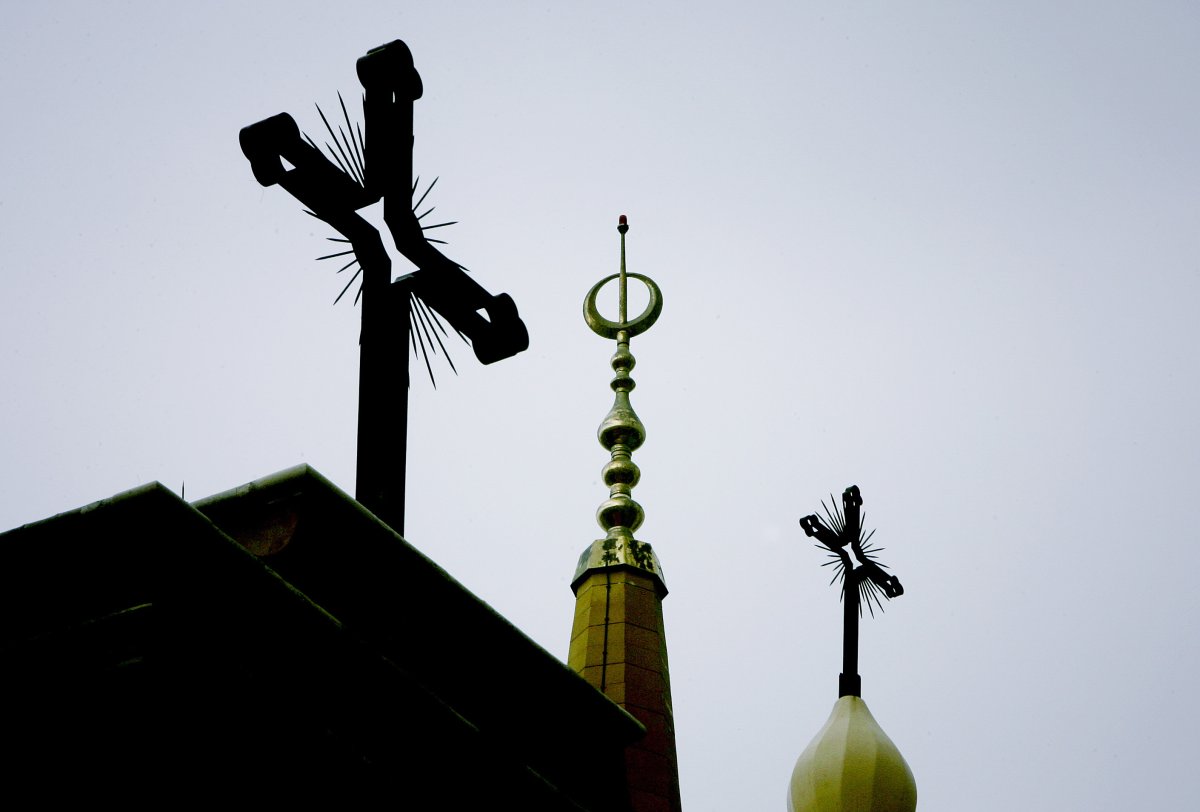Though the COVID-19 pandemic impacted business as usual across the world, it has not stopped our work on the U.S. Commission on International Religious Freedom (USCIRF).
While the pandemic prevented our team from meeting in-person with victims of religious persecution, abusive governments around the world do not get a free pass to deny the fundamental right of freedom of religion or belief.
After visits to Azerbaijan, Laos, Malaysia and Sudan in early 2020, we quickly adapted to virtual meetings, events and public hearings to gather information and hear concerns from witnesses and experts around the world.
Recently released, our 2021 annual report documents how governments treat religious practice during the pandemic. Some measures to restrict in-person religious activities were justifiable on public health grounds, while others unfairly targeted religious communities and were troubling. We saw an alarming rise of religious intolerance, including anti-Semitism, in a range of countries based on misinformation about the source and spread of the virus.
Iran jailed many Baha'is and moved Sufi Muslims into prison wards with known cases of COVID-19. Sri Lanka required cremation of COVID-19 casualties despite the practice being forbidden in Islam. Vietnam arrested members of the Ha Mon religious group on charges of "sabotaging implementation of solidarity practices." In Pakistan and Saudi Arabia, authorities baselessly blamed Shiite religious communities for the spread of the coronavirus and imposed stricter lockdown measures accordingly.
Despite the public health-related challenges, we also found positive developments. Sudan continued to make remarkable improvements. Most notably, the transitional government passed the Fundamental Rights and Freedoms Act in July, which repealed the apostasy law, ended flogging for blasphemy, banned female genital mutilation and abolished the guardianship law, among other changes.
By contrast, religious freedom conditions in China continued to deteriorate, with the world becoming increasingly aware of the Chinese Community Party's (CCP) ongoing genocide against Uyghur and other Turkic Muslims in Xinjiang. The government intensified its "Sinicization of religion" policy, particularly targeting religious communities perceived to have foreign connections, such as Christians, Muslims, Tibetan Buddhists and Falun Gong practitioners.

Beyond its egregious abuses at home, the CCP has been exporting advanced surveillance technology to countries where repressive governments may seek to replicate similar tactics. Beijing also uses its economic and geopolitical influence to blackmail foreign countries and businesses and to silence international scrutiny of its abysmal human rights record. The Chinese Communist government recently sanctioned both of us for speaking out about the abhorrent violations in China as chair and vice chair of USCIRF, but USCIRF will not be intimidated or silenced.
We are also alarmed by developments in Myanmar. The same military that has long been perpetrating a genocidal campaign against the Rohingya people is now in control of the country, following a coup d'état this past February. Ongoing clashes between the Burmese military and ethnic armed groups in states where Muslim and Christian religious minorities reside resulted in civilian casualties, displacement and property destruction, which included houses of worship.
Against the backdrop of these and other severe challenges, we were pleased to see the U.S. government implement several key recommendations made by USCIRF during 2020 and early 2021. Examples include designating China's treatment of Uyghurs and other Turkic Muslims as genocide and crimes against humanity, increasing the prioritization of religious freedom abroad in U.S. diplomacy and development efforts, implementing more targeted sanctions to deter severe religious freedom violations, pressing foreign governments to release religious prisoners of conscience and indicating an intent to raise the annual number of refugees resettled to the United States.
To continue moving the ball forward, we urge the Biden administration to support freedom of religion abroad as a top priority, by swiftly filling key government positions relevant to this issue. We urge President Biden to immediately sign the revised refugee ceiling determination. We call on his administration to prioritize resettlement for survivors of the most egregious forms of religious persecution. We also hope that the administration will review U.S. policy toward countries of particular concern—those designated by the State Department as the worst violators of religious freedom—and take policy actions to demonstrate meaningful consequences and encourage improvements.
As we have seen in countries like Sudan, positive change can happen. As conditions on the ground evolve, so will our focus. While uncertainty continues with the ongoing pandemic, one thing that will not change is our dedication to advocating for religious freedom for all around the world.
Gayle Manchin is chair of the United States Commission on International Religious Freedom.
Tony Perkins is a vice chair of the United States Commission on International Religious Freedom.
The views expressed in this article are the writers' own.
Uncommon Knowledge
Newsweek is committed to challenging conventional wisdom and finding connections in the search for common ground.
Newsweek is committed to challenging conventional wisdom and finding connections in the search for common ground.
About the writer
To read how Newsweek uses AI as a newsroom tool, Click here.








